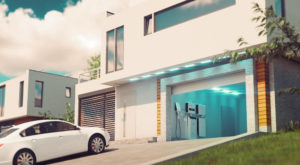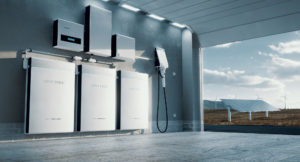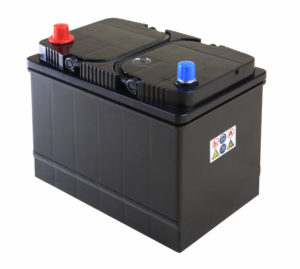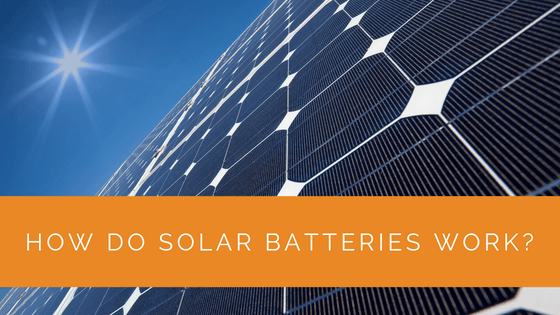If you’re a homeowner looking for a distinctive way to power your home, look no further! In today’s times, solar power is one of the most innovative ways to generate electricity. Adding a solar battery will only be fruitful when you rely on a solar power system.
Solar batteries store any excess solar energy that would ordinarily be transmitted back to the grid. You may use the solar energy collected in your battery to generate power at night.
Your attempts for clean solar power can materialize if you set up solar installers for your solar panels. This article will help you understand the intricacies of solar-powered batteries and their benefits when coupled with panels and a battery inverter.
Contents
- 1 Key Takeaways
- 2 Choosing the Best Battery Storage System
- 3 Working of a Solar Battery
- 4 Types of Battery Installations: DC Vs. AC Coupled Systems
- 5 Comparing AC-Coupled and DC-Coupled Storage
- 6 Benefits of Solar Battery Storage Systems
- 7 FAQs
- 8 Case Study: Enhancing Energy Independence with Solar Batteries
- 9 Expert Insights From Our Solar Panel Installers About Solar Batteries
- 10 Experience Solar Excellence with Us!
- 11 Wrapping Up
Key Takeaways
- Solar batteries store excess solar energy generated during the day, allowing you to use it at night or during power outages.
- There are two main types of batteries for home solar systems – Lithium-ion and Lead-acid, each with its advantages and drawbacks.
- Solar battery installations can be DC or AC coupled, with energy conversion and efficiency differences. Both options offer benefits for utilizing solar energy and reducing reliance on the grid.
Choosing the Best Battery Storage System
Lithium-ion and lead batteries are the two basic types of battery technology that work with home solar systems. Each one of these battery storage solutions has its benefits and drawbacks. Let’s look more closely at the attributes of each type.
Lithium-ion Battery
Lithium-ion batteries are the tenderfoots when it comes to the storage of energy. Electric Vehicle manufacturers understood lithium ion’s importance as an energy storage choice as the demand for electric vehicles grew. Over time, they have gained instant popularity as one of the most rampant solar battery systems.
Lithium-ion batteries nearly never need to be serviced. They also have a more significant battery energy content than lead batteries, which means they can store greater energy in a relatively small space.
Lithium batteries have a prolonged lifespan; most come with a ten-year warranty.

Lead-acid Battery
In battery solutions, lead-acid batteries are a tested and reliable technology. For a considerable time, deep-cycle batteries were used to store energy – since the 1800s, to be precise. Due to their dependability, they’ve been able to stay in business.
Floating batteries and encapsulated batteries are the primary kinds of lead batteries.
They are a comparatively less expensive form of energy storage, rendering them quite economical. Furthermore, since these batteries have been there for a long time, they are simple to discard and recycle.
Working of a Solar Battery
Solar-powered batteries work by assisting you in using the solar energy you produce. A solar panel system generates electricity from the area where sunlight hits.
If you don’t have solar battery storage, all the excess electricity cultivated from solar power will be moved to the grid. On the other hand, the extra electricity gets stored for later when you have such a battery.
Types of Battery Installations: DC Vs. AC Coupled Systems
DC and AC coupling are the two kinds of battery installation solutions. How solar panels connect to an energy storage device or a solar battery is called DC or AC coupling.
Due to the electrical connections between the solar PV array and the battery, they are referred to as an AC (Alternating Current) or DC (Direct Current) system.
The path electricity takes once solar panels are generated is the main difference between a DC-coupled and an AC-coupled system. Solar panels produce DC electricity, which must be converted to AC electricity to power your home’s appliances—solar batteries, on the other hand, store power in DC form.
Residential and industrial solar projects have traditionally used AC-coupled battery storage systems. However, DC coupling is becoming increasingly popular as more DC choices become available.

Comparing AC-Coupled and DC-Coupled Storage
Whether you opt for a DC-coupled or an AC-Coupled system, you can receive the returns on your solar system without relying on the grid. DC batteries are occasionally more efficient because the electricity change only happens once, from DC power to AC.
On the other hand, an AC battery can take up the incoming AC power and charge the solar battery. It has a significant advantage wherein you can use it with any solar system. Solar cells are responsible for creating DC electricity, which subsequently gets adapted into AC electricity.
A significant advantage of AC-coupled storage is storing energy from the solar panel system and the grid. You can use a solar inverter, which accepts the AC output from various systems.
Benefits of Solar Battery Storage Systems
Attaching a battery backup for your solar panels efficiently ensures you get the most out of the solar power system. Listed below are some of the most popular benefits of a home energy storage system:
Saves your Home from Power Outages
With a solar battery, you won’t have to worry about running out of power. Any excess energy your solar panels produce will be stored for later use. You can then use this stored energy during grid outages or when the power goes down.
Excess Electricity is Stored
Solar battery systems will ensure that extra energy will be saved for later use. This way, you won’t have to rely on grid electricity. The battery backup ensures you rely on its reserves, not the grid. Solar batteries are a great backup power option, offering you a noiseless experience to enjoy clean energy.
Reduced Carbon Footprint
Opting for solar energy storage will ensure that you take the environment seriously and make the most of the clean energy. When you install solar panels, you won’t have to worry about using intensive energy from the electricity grid.

FAQs
Is a Solar Battery System Cheaper?
Many homeowners complain about utility companies sending them inflated prices and credit for the solar power they send to the grid. In these cases, owning a solar battery will not help the owners reap economic benefits. On the other hand, batteries will be a good option if you live in a house with rigorous electricity flows, especially during peak hours.
How Many Solar Batteries Will You Need to Power Your Home?
You will need around two to three batteries if you want to conveniently use energy storage when your solar panels aren’t processing solar energy. On the other hand, if you aim to go entirely off-grid, you will probably require around eight or twelve batteries.
Which Is Better for The Environment, Solar Batteries or The Grid Supply?
Solar batteries are a fantastic choice if you don’t always want to rely on non-replenishable grid energy. Although the materials and the time used to make and power the batteries are resource-intensive, they’re quite helpful. Moreover, they’re much better than relying on the grid since it heavily depends on fossil fuels.
Case Study: Enhancing Energy Independence with Solar Batteries
Background
At Solar Panels Network USA, our mission is to provide sustainable energy solutions that meet our customers’ diverse needs. Recently, we worked with a homeowner in a rural area who sought to enhance their energy independence and reliability through the installation of a comprehensive solar power system, including solar batteries.
Project Overview
The client, living in a remote location with frequent power outages, required a robust solar power system with reliable energy storage to ensure uninterrupted power supply. They also aimed to reduce their reliance on the grid and lower their carbon footprint.
Implementation
After assessing the client’s energy needs and site conditions, we recommended a solar power system comprising high-efficiency solar panels paired with lithium-ion batteries for energy storage. This setup included:
- Solar Panels: High-efficiency monocrystalline panels to maximize energy capture.
- Solar Batteries: Lithium-ion batteries with a ten-year warranty, known for their long lifespan and high energy density.
- Inverter System: An advanced inverter to manage the conversion of DC to AC power efficiently.
We opted for an AC-coupled battery storage system to allow for greater flexibility and ease of integration with the existing grid setup. This choice also ensured that the system could store energy from both the solar panels and the grid, providing a reliable backup during power outages.
Results
The installation was completed within a week, and the system immediately began delivering impressive results. The solar panels efficiently captured sunlight throughout the day, while the lithium-ion batteries stored excess energy for use at night and during outages. Key outcomes included:
- Energy Independence: The client experienced a significant reduction in reliance on the grid, with the solar system covering up to 80% of their energy needs.
- Cost Savings: The efficient energy storage translated to lower electricity bills, with savings of approximately 50% compared to previous expenses.
- Environmental Impact: The client’s carbon footprint was substantially reduced, contributing to their sustainability goals.
Summary
This project demonstrates the transformative impact of integrating solar batteries into a solar power system. The combination of high-efficiency panels and reliable lithium-ion batteries provided the client with a consistent and eco-friendly energy source. At Solar Panels Network USA, we continue to leverage advanced solar technologies to deliver sustainable and cost-effective energy solutions to our customers.
Expert Insights From Our Solar Panel Installers About Solar Batteries
Solar batteries are an essential addition to any solar power system. They store excess energy generated during the day, allowing you to use it at night or during power outages. This ensures that your home remains powered even when the sun isn’t shining.
Senior Solar Installer
Lithium-ion batteries have revolutionized the solar industry with their high energy density and long lifespan. They require minimal maintenance and can store significant energy in a compact space, making them ideal for residential use.
Lead Solar Technician
The efficiency of a solar power system significantly increases with a solar battery backup. Not only does it reduce reliance on the grid, but it also maximizes the use of renewable energy, thereby reducing the carbon footprint.
Solar Installation Manager
Experience Solar Excellence with Us!
Trust in Solar Panels Network USA, where our seasoned experts deliver top-quality solar solutions for homes and businesses nationwide. With a legacy of countless successful installations and a commitment to sustainable energy, we’re your reliable partner in the solar journey. Ready for a brighter, eco-friendly future? Call us now at (855) 427-0058 and harness the sun’s power!
Wrapping Up
As more people discover the benefits of solar energy, solar batteries, and panels will become more popular. For this reason, it’s essential to understand the components of solar energy, how they work together, and how they differ from other energy forms.
Solar batteries can be an excellent method for households with solar panels to stabilize their energy systems and relish a more dependable system for the coming years. In addition to this, these batteries are also environmentally friendly, allowing you to be more energy efficient in your home or on the move.
The best part is that you can put the solar battery to good use in many unfortunate situations. Solar batteries also come to the rescue if you’re rounding up a hefty electric bill or battling a power outage.
About the Author
Solar Panels Network USA stands at the forefront of solar energy solutions, driven by a team of seasoned solar engineers and energy consultants. With over decades of experience in delivering high-quality solar installations and maintenance, we are committed to promoting sustainable energy through customer-centric, tailored solutions. Our articles reflect this commitment, crafted collaboratively by experts to provide accurate, up-to-date insights into solar technology, ensuring our readers are well-informed and empowered in their solar energy decisions.

